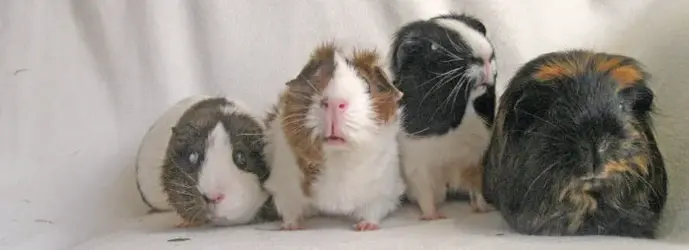MollyB
Junior Guinea Pig
Morning all,
I rescued my first piggie yesterday! He's a boar that has to be kept alone as his very poor eyesight means he gets stressed when around other piggies. Meet Teddy:

Does anyone have any experience with helping to comfort a blind piggie? He can see shapes/movement, but he can't distinguish what it is. He's so jumpy I just want to do anything I can that might help
I'm happy yo leave him alone except for feeding if that's the better option, I was just wondering if anyone's had a similar pig experience that could also give me some pointers?
Thanks!
I rescued my first piggie yesterday! He's a boar that has to be kept alone as his very poor eyesight means he gets stressed when around other piggies. Meet Teddy:

Does anyone have any experience with helping to comfort a blind piggie? He can see shapes/movement, but he can't distinguish what it is. He's so jumpy I just want to do anything I can that might help
I'm happy yo leave him alone except for feeding if that's the better option, I was just wondering if anyone's had a similar pig experience that could also give me some pointers?
Thanks!
